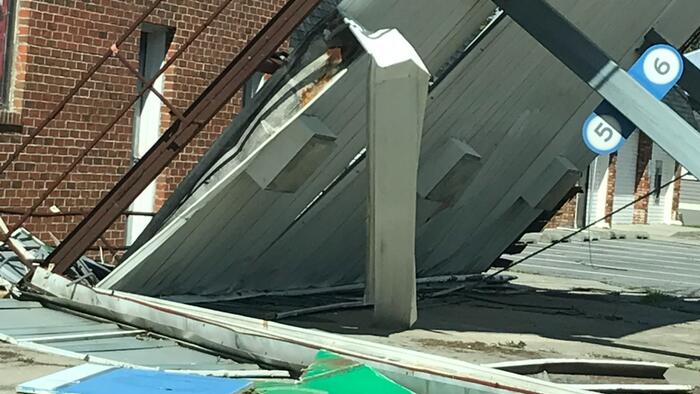In his analysis published via RealClearPolitics, Ryan Bonifay highlights the grave implications of Hurricane Helene’s devastation in western North Carolina, which not only devastated physical infrastructure but also posed a threat to the region’s political landscape. The hurricane has devastated numerous communities, leaving many without homes or essential services in a state recognized for its swing-vote status in national elections. The ongoing fight for electoral dominance between parties has crucial dimensions as political operatives from both the Republican and Democratic parties funnel massive resources into North Carolina’s 2024 election. With figures like Kamala Harris and Donald Trump actively campaigning for votes in a state historically known for its nail-biting margins — including Trump’s slim 1.5 percentage point victory in 2020 and Obama’s narrow win in 2008 — the stakes have never been higher.
The aftermath of the hurricane presents a pressing concern regarding voter disenfranchisement. In the wake of Helene’s thorough destruction, many residents face dire circumstances, including personal losses and the uncertainty of displacement, significantly hindering their ability to engage in the election process. Although the North Carolina Board of Elections is working on rule adjustments to facilitate voting, it remains unlikely that individuals caught in the turmoil will prioritize re-registering. The editorial raises a critical question: what if a significant number of western North Carolina voters — whose rights are jeopardized by the storm — are unable to make their voices heard in the upcoming presidential election?
Bonifay further elaborates on the demographics of western North Carolina, illustrating the region’s majority Republican leaning. Out of 1.3 million registered voters, a substantial portion identified as Republican, evidenced by the fact that in 2020, Trump received 604,119 votes against Biden’s 356,902 in those 25 counties. This presents a formidable challenge for Republicans, as their electoral success is contingent upon maintaining robust support in the region, particularly as they face potential losses elsewhere in the state. The fluctuating dynamics of past elections suggest a troubling trend: without a strong turnout in western North Carolina, a Republican candidate’s chances of winning the state — and subsequently the presidency — dwindle significantly.
Absentee ballot requests have been recorded, but these numbers could be misleading without consideration for the broader context of voter turnout, particularly regarding in-person early voting. Such voting is especially vital in the wake of a disaster where conventional methods might be disrupted—an aspect compounded by ongoing issues around infrastructure and access to polling sites exacerbated by Helene’s wreckage. This situation raises critical concerns about whether voters seeking to exercise their rights will be adequately supported in light of these challenges, particularly in counties heavily impacted by the storm.
Bonifay warns of the political fallout should a significant voting segment from this area be rendered unable to participate in the election. A situation could evolve reminiscent of the controversial Florida election in 2000, where disputes over ballots and electoral integrity captured national attention. Such chaos and political strife not only threaten the integrity of the electoral process but also may further erode public trust in democratic institutions, already strained amid enduring divisiveness facing the country. Given the volatile nature of current political tensions, any perceived injustices or inadequacies in managing the election process could ignite deeper frustrations amongst the electorate.
Ultimately, Bonifay calls for immediate action from both the North Carolina Board of Elections and the political parties involved to ensure the electoral process is as inclusive and equitable as possible for affected residents. This situation underscores the urgency to protect voter rights in the face of unprecedented natural disasters and highlights the heavy political implications that naturally arise from such crises. While losing sight of the human cost is easy, Bonifay emphasizes that those in power have a responsibility to safeguard democratic participation, ensuring that residents impacted by Hurricane Helene can successfully navigate the tumultuous landscape toward the ballot box. The urgency of this situation is paramount, as the political ramifications could shape not only the immediate outcomes of the election but the broader health of democracy in the years to come.

